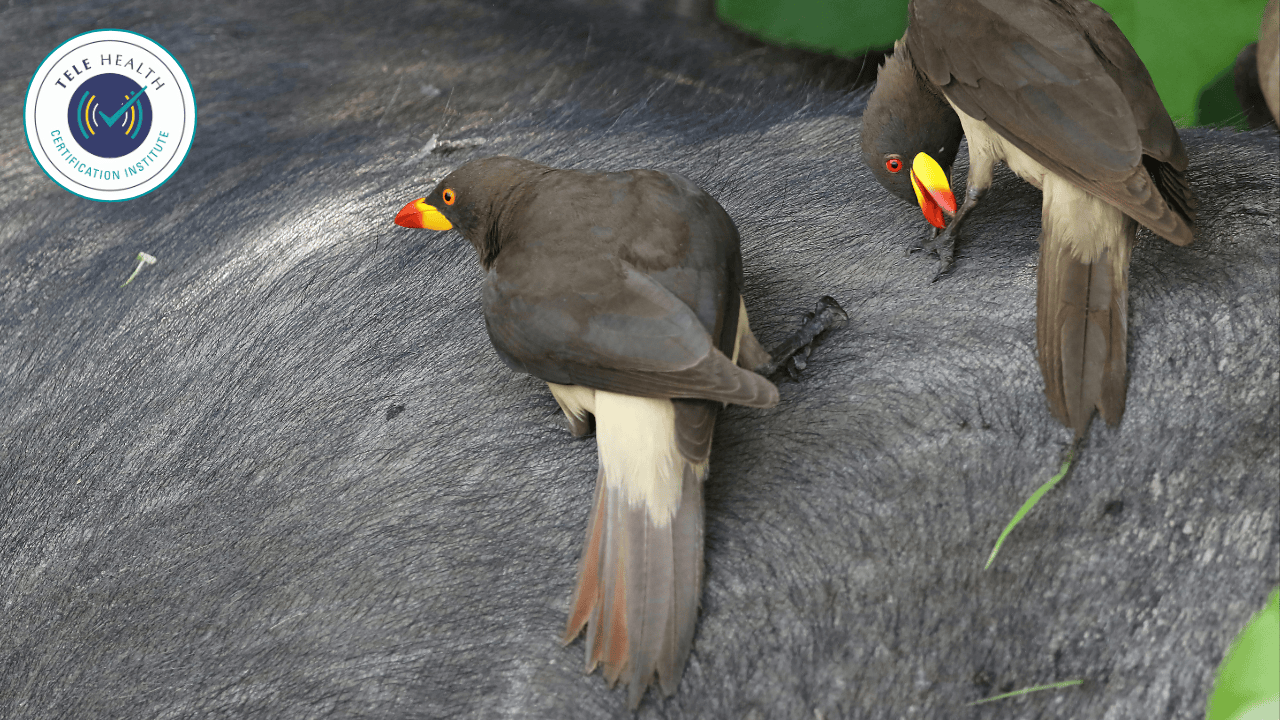Animals as Co-Therapists: Blending Animal Interventions with a Range of Professional Theories
Enroll in the Online Self-Study course and complete it at your own pace.
2.5 CE hours available for behavioral health clinicians upon completion.

The most powerful therapeutic breakthroughs often come from the least expected sources—and animal co-therapists are no exception. With the ability to bypass client defenses, create safety, and facilitate genuine connection, Animal-Assisted Interventions (AAIs) offer clinicians transformative new ways to deliver care.
Whether you're looking to deepen your work with trauma, increase client engagement, or align interventions with your theoretical orientation, this course provides a dynamic roadmap for integrating animals into evidence-based mental health practice.
Enroll in the 2.5 CE Online Self-Study for $125
Payment Options are listed at checkout
Dr. Christina Strayer, Ed.D., LCMHCS, AAT-I, is a national leader in Animal-Assisted Therapy and a seasoned clinician with a rich background in trauma, addictions, and holistic care. As lead instructor of the AAT-I credentialing program, she brings both lived experience and academic rigor to her teaching—alongside her co-facilitators of the furry, feathered, and hooved variety.
Dr. Strayer’s client-centered and integrative style honors the therapeutic power of the human-animal bond while grounding interventions in established theory. She emphasizes safety, evidence, and ethical alignment throughout her instruction, making this course both accessible and applicable to a wide range of practice settings.
Clinicians will explore how to enhance therapeutic alliance using animals, apply attachment theory through co-therapy with animals, and modify interventions to suit their theoretical lens—including CBT, Adlerian, Gestalt, Person-Centered, Psychodynamic, and Reality Therapy. The course also delves into assessing client appropriateness, managing safety considerations, and aligning with ACA and AVMA guidelines.

Instructor
Dr. Christina Strayer, Ed.D, LCMHCS, AAT-I, THTC, CYT-200, NLC-P, is a Licensed Clinical Mental Health Counselor and Supervisor, Licensed Clinical Addictions Specialist-Associate, Pet Partner Team Evaluator, Animal Assisted Therapist-Interventionist, and Life Coach with her coaching practice Energy Coaching with Horses and Others (E.C.H.O.) in North Carolina. Her private practice is Animal Assisted Therapy of the Triangle. She is trained in a variety of Integrative Therapies including Art, Yoga, and Mindfulness. Her theoretical approach is Client-centered and Holistic. Along with her mini goats, avian, equine, canine, and crustacean helpers, Christina combines her study of the power of the human-animal bond in healing with proven counseling theories and techniques to guide clients in reaching their goals.
She has a diverse background in counseling and teaching. She is the Lead Instructor for the Animal Assisted Therapy Interventionist (AAT-I) certification course. She has served as an adjunct professor at Campbell University in the Counselor Education department.
Key Takeaways:
Transform the therapeutic alliance: Discover how animals foster trust, attunement, and emotional safety—particularly for clients with insecure attachment or trauma histories.
Integrate AAI into your modality: Learn how to align animal-assisted interventions with your clinical orientation, from CBT to Person-Centered approaches.
Prioritize ethical safety and fit: Understand how to assess client appropriateness, address risks, and uphold best practices for integrating animals in therapy.
Why this course?
Deeply grounded in evidence and theory: You’ll gain a clear understanding of how AAIs connect to attachment, neuroscience, and core counseling models.
Led by a nationally recognized expert: Dr. Strayer brings decades of experience, scholarly expertise, and real-world practice to every lesson.
Part of a credentialed AAT pathway: This course is one of several in the AAT Interventionist Certificate Program, giving you a step-by-step foundation for confident integration.
Learning Objectives:
Explain attachment theory, how an animal as a co-therapist can provide a corrective attachment experience for your clients, and the different means by which the human-animal interaction can elicit unexpected vulnerability and disclosures in others.
Match AAI’s with a variety of evidence-based counseling theories, explain how you would incorporate AAI’s with your theoretical orientation to support the population with which you choose to work.
Describe how to assess the suitability, amenability, and related safety concerns of each client to animal-assisted interventions in counseling.
As you consider new tools to expand your therapeutic effectiveness, this course offers the knowledge and confidence to integrate animal co-therapists into your existing framework—with clarity, compassion, and ethical integrity.
Add to cart to begin learning instantly.
This is a non-interactive, self-study course. It consists of 100+ minutes of video instruction, reading assignments and written responses, a post-test and an evaluation.
This course is Course 5 (of 8) of the AAT-I Credential Program and can be taken individually or as part of the full program.
Please note: Textbooks are required to complete the AAT-I learning content. Reading material is not included with course enrollment and must be purchased separately from retail booksellers. (See "Requirements" tab for specifics.)
Select each tab for course details
Availability: From the time of registration, you have six months to access the coursework.
Who Should Attend: This course is intended for clinicians who provide behavioral health services.
Teaching Methods: This is a non-interactive, self-study course. Teaching methods for this course include recorded lectures, videos, a post-test, and a course evaluation.
How to attend: Directions for completing a course can be found by clicking here.
This program was recorded on September 20, 2023.
Testimonials
Bridgette Nalumu
Public health consultant, Green and Purple Consultancy Network
Lora Verley
Clinical Therapist, Bayless Integrated Healthcare
Jackie Tanna
Therapist, Region One Mental Health
Jackie Bell-Russell
Therapeutic Behavioral Strategist, Rialto Unified School District